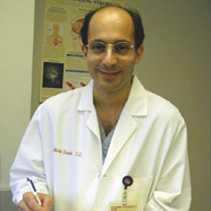“What are some lifestyle changes to prevent further heart issues for my husband?”
My husband has recently undergone an angioplasty, and I want him to have a much healthier lifestyle to prevent any further heart issues in the future. What do you recommend?
5 Answers
CardiologistAngioplasty
Mark Rasak
Cardiologist
Without knowing his medical history or his risk factors, I will have to stick with the standard response: lose weight, exercise, don't smoke, and make sure his cholesterol and sugar labs are okay.
1. Plant-based food, fish, avoid dairy, meat only on special occasions
2. Side salad with every lunch and dinner
3. 6-8 hours of sleep
4. Avoid even 2nd-hand smoking
5. Keeping lipids (cholesterol profile), blood sugar, blood pressure perfect
6. See your cardiologist at least yearly
7. Stress relieving techniques like 10 minutes of meditation twice daily or more
Living life in moderation, peace, and joy ALWAYS.
2. Side salad with every lunch and dinner
3. 6-8 hours of sleep
4. Avoid even 2nd-hand smoking
5. Keeping lipids (cholesterol profile), blood sugar, blood pressure perfect
6. See your cardiologist at least yearly
7. Stress relieving techniques like 10 minutes of meditation twice daily or more
Living life in moderation, peace, and joy ALWAYS.
I'm afraid it's rather boringly obvious: don't smoke; don't stop taking a statin; do take whatever meds are necessary to keep the blood pressure normal (less than 130/80); take some regular exercise (it doesn't have to be extreme); keep the weight in a healthy range by diet, if necessary; enjoy life!
Thanks for your question.
1-I assume your husband received a stent. If so, then a strict compliance with his medications to prevent stent thrombosis, which is a potentially life-threatening complication, should be the most immediate task. If it was a dug-eluding stent, he has to adhere to a dual anti-platelets regimen religiously for a year or as recommended by his intervention cardiologist.
2-He needs to get guidance from his cardiologists as to when can he start a long-term exercise program, which should be preceded by a guided cardiac rehab program.
3-Secondary prevention, meaning a goal to reduce the risk of heart attacks, includes adherence to statins medications with goal of lowering LDL-cholesterol (the bad cholesterol) to less than 70mg/dL. Other medications such as Ace inhibitors, ARB’s, and Beta Blockers would depend on his condition and his cardiologist's advice.
4-Besides long-term exercise and goal of ideal BMI. Exercise should include both dynamic exercise (i.e., biking, swimming, treadmill, etc.) and stress or resistance exercise (i.e., free weights lifting or machines weights).
5-Smoking cessation, if applicable.
6-Stress reduction and management.
6-Adequate sleep.
7-If applicable, depression should be managed effectively.
8-Adherence to a healthy diet for the heart.
1-I assume your husband received a stent. If so, then a strict compliance with his medications to prevent stent thrombosis, which is a potentially life-threatening complication, should be the most immediate task. If it was a dug-eluding stent, he has to adhere to a dual anti-platelets regimen religiously for a year or as recommended by his intervention cardiologist.
2-He needs to get guidance from his cardiologists as to when can he start a long-term exercise program, which should be preceded by a guided cardiac rehab program.
3-Secondary prevention, meaning a goal to reduce the risk of heart attacks, includes adherence to statins medications with goal of lowering LDL-cholesterol (the bad cholesterol) to less than 70mg/dL. Other medications such as Ace inhibitors, ARB’s, and Beta Blockers would depend on his condition and his cardiologist's advice.
4-Besides long-term exercise and goal of ideal BMI. Exercise should include both dynamic exercise (i.e., biking, swimming, treadmill, etc.) and stress or resistance exercise (i.e., free weights lifting or machines weights).
5-Smoking cessation, if applicable.
6-Stress reduction and management.
6-Adequate sleep.
7-If applicable, depression should be managed effectively.
8-Adherence to a healthy diet for the heart.
Julia G. Ansari
Cardiologist
He should undergo cardiac rehab. They usually have nutrition classes as well, but I recommend a Mediterranean diet. He should exercise minimally 4 days a week for 20-30 min along with control of all risk factors, including high blood pressure, diabetes, and cholesterol.





